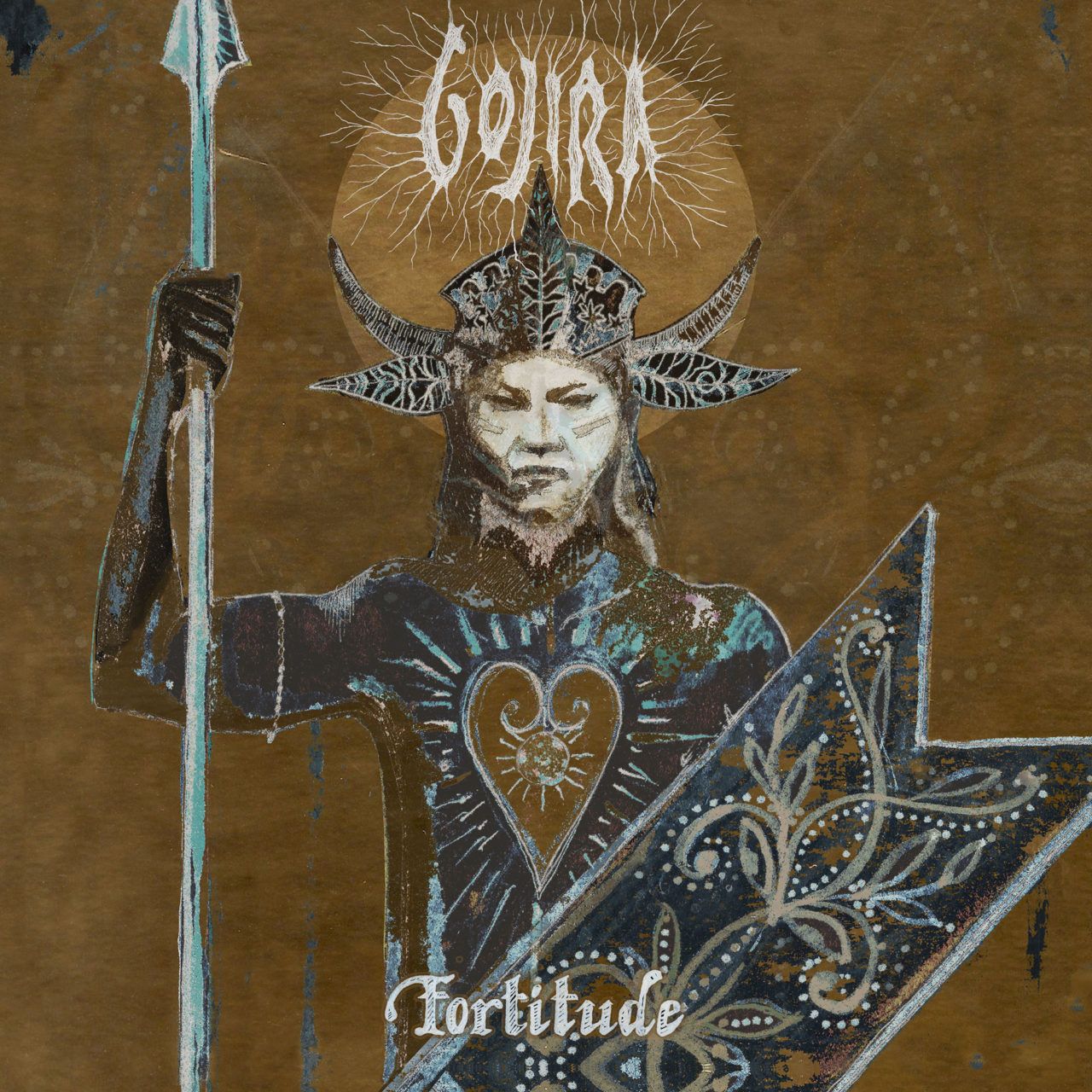‘Fortitude’ is a turning point for French metal quartet Gojira
by Luke Gordon
2021-05-09

Gojira
Fortitude
Roadrunner · April 30, 2021

French quartet Gojira is back with their seventh studio album, after five years without a full-length release. While the band, whose original lineup remains intact, has undoubtedly retained their unique presence and style on the album, Fortitude brings an array of new characteristics and design that have not been seen on previous LPs.
Most importantly, the album’s song structure is notably simpler. What has long set Gojira apart from most other artists is their approach to the chorus. In the past, the band has seldom relied on a strong chorus to keep listeners engaged, often foregoing the presence of a chorus at all. Gojira’s most popular and recognizable songs are hardly known for their choruses, but rather a structure that allows each song to evolve and change from start to finish. Fortitude is not the same; the album is filled with floaty, melodic choruses that sometimes seem out of place. It’s a different approach to songwriting, and where it works, it brings a new feel to a band that has always surprised its listeners.
The album’s lead single “Born For One Thing” perhaps best embodies this new approach. It’s filled with hard-hitting riffs that are offset by a chorus that seems to send the song into slow motion. Admittedly, it makes the song flow in an interesting way. It’s one of the best songs on the album, and a great example of where Gojira’s new formula works.
“Amazonia” is the album’s best song. It combines everything there is to like about the new and old aspects of the band. The song builds suspense perfectly, releasing it in a number of innovative, head-banging riffs that creatively skirt through changing rhythms in a masterpiece only Gojira could produce. It’s everything we’ve come to love from the band and then some. It transitions nicely into “Another World,” which carries rhythmically pleasing arpeggios straight through from verse to chorus. The chorus, while in line with the rest of the LP, is better than most and certainly more memorable.
Following “Another World” is “Hold On,” the album’s first true flop. The track features one good riff, but it’s stretched out over five and a half minutes and brings nothing else to the table. Next, “New Found” is a standout song. It is more risky, less repetitive, and unapologetically bass-driven. As a whole, it would be right at home on any of Gojira’s earlier releases. It too breaks out into a floaty, melodic chorus, but the heat returns quickly, saving listeners from boredom. It’s a solid way to bridge the gap between old and new.
After “New Found,” the album heads downhill. The biggest story of the album is the two-part snooze-fest made up of “Fortitude” and “The Chant.” The songs are essentially parts two and three to “The Shooting Star” off of Magma, which come together to create a 13-minute holding pattern. “The Chant” would work nicely as background music, but it’s a far cry from the fast-paced, technically advanced offerings we’re used to from a band that has rarely failed to excite in the past. “Sphinx” is better, but it is sure to drown in the two-plus decades of music the band has produced.
Next, “Into the Storm” brings a polyrhythm-filled intro that breaks into a portion of heavy, bass-driven chugs that is a near carbon-copy of the intro riff to Meshuggah’s “Bleed.” The track flashes the heavier capabilities of the band and is the most rhythmically interesting on the album. “The Trails” is particularly disappointing. It’s slow, repetitive, and doesn’t get anywhere. On an album with several lighter tracks ahead of it, another wasn’t necessary, and it sends Fortitude limping to the finish line. Fortunately, the LP closes stronger; “Grind” is grittier, featuring unclean vocals, heavier bass and choppier instrumentals. While nothing particularly special, it’s a fitting end to Fortitude.
Ultimately, the album is more approachable. A simpler, more conventional song structure, consistent melodies and occasional acoustics have created a package that is undoubtedly more palatable for first-time listeners, while still holding onto enough power to please long-time fans. Bands evolve, and there’s nothing wrong with that. Gojira, in particular, have room to experiment; the group can rely on its inventiveness, and from a technical aspect, it remains one of the best in music. While Fortitude is a solid album, listeners should recognize that the band has chosen to head in the direction of a slightly more generic structure. But as the prior two decades have proven, Gojira will always remain incredibly original and entertaining, and while underwhelming at times, Fortitude is no different.
